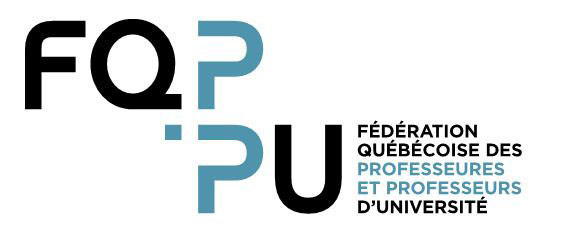With increasing workloads and ever-growing institutional demands, can professors still achieve a proper work-life balance?
What obstacles prevent professors from thriving, and what concrete steps can be taken to improve their working conditions? Ten years ago, the Fédération des professeures et professeurs d’université (FQPPU) embarked on an action-research project titled The Juggling Act: Thriving or surviving?. In this initiative, 145 respondents from ten Quebec universities shared their experiences.
Surprisingly, despite the decade since this research was conducted, the findings remain unchanged. In some cases, conditions have even worsened due to Quebec universities’ underfunding. The insights and recommendations presented here remain relevant and applicable today.
The academic career, often regarded as one of the most fulfilling professions, has undergone significant transformations in recent years. These changes have adversely affected their quality of life and the overall mission of universities. The increasing workload—split between teaching, research, and community service—places considerable pressure on professors and raises critical questions about the future of Quebec’s universities.
Table of contents
Autonomy and Freedom: The Appeal of the Profession
Why do people choose to become professors? One of the main draws of this profession is the significant freedom and autonomy professors have in their work. They can select their research topics, teaching methods, and projects. This level of independence fosters a sense of control over their work, making it one of the most rewarding aspects of the profession. Many professors describe their role as a path to intellectual emancipation, where curiosity and the pursuit of knowledge are central to their everyday lives.
An Increasing Workload
While university professors enjoy certain privileges, these often come with an escalating workload that makes balancing professional and personal life increasingly challenging. Academic tasks have become more fragmented, complicating the management of various responsibilities. Teaching, research, and administrative duties tend to accumulate, frequently compelling professors to work beyond standard hours in a culture where overworking is becoming the norm. This heightened workload hinders the ability to focus on the complex, long-term tasks essential to an academic career.

Imposed and normative overload
Work overload can result from both institutional expectations and normative overload. Normative pressures refer to implicit, unspoken norms or indirect influences that create a fear of not meeting expectations. This phenomenon is often observed when professors compare themselves to their colleagues. For instance, they may strive to meet unspoken productivity standards, such as publishing articles or securing grants.
These expectations create an invisible yet genuine pressure, compelling everyone to continually excel at the risk of burnout. Another form of overload, voluntary overload, is linked to professors’ passion for their work. Many faculty members invest more effort in their pursuit of excellence, often exceeding institutional expectations.
The impact on health and personal life
The effects of this overload extend beyond the professional sphere, significantly affecting professors’ physical and mental health—many experience stress-related issues such as insomnia, muscle tension, and digestive problems. Family relationships, leisure activities, and overall well-being are often compromised, resulting in guilt and a sense of losing control.
Self-Protective Strategies
In response to these challenges, professors adopt various strategies to safeguard their well-being and health. Some choose to decline additional responsibilities or work more from home to minimize frequent interruptions on campus. Others focus exclusively on their research and teaching, limiting their involvement in administrative tasks. While these strategies can be effective, they may also create isolation by decreasing professors’ engagement in collaborative spaces and intellectual exchanges.

Work-Life Balance: A Call to Action
In light of current circumstances, an urgent call to action is necessary. The FQPPU invites professors to come together to safeguard their well-being and the quality of their work. The challenge of achieving a healthy work-life balance is manageable; our collective efforts can identify solutions that restore the balance between professional and personal lives. Addressing these issues is crucial for ensuring the future of a university that is accessible, humane, and of high quality.
Several strategies can improve working conditions for professors:
- Revise Promotion Criteria: We must value all aspects of the academic role, including teaching, research, and service to the community.
- Reduce Bureaucracy: Simplifying administrative procedures and decreasing the required forms will alleviate workload pressures.
- Increase Resources: Hiring more support staff and reducing the student-to-professor ratio can enhance working conditions.
- Promote a Better Balance Between Professional and Personal Life: Professors should be encouraged to take breaks, set boundaries, and engage in activities outside of work to promote a better work-life balance.
- Raise Awareness: Department heads need to understand the risks of overwork and should respect professors’ limits, particularly for those early in their careers.
- Create Dialogue Spaces: Establishing forums for professors to discuss challenges and propose collective solutions is essential.
In conclusion
While rewarding in many ways, professors’ work is currently at a crossroads. The increasing workload poses risks not only to their health but also to the quality of teaching and research in Quebec universities. In this context, the FQPPU presents opportunities for reflection to help restore a balance between professional demands and personal life for professors—essentially, to achieve a genuine work-life balance. To address this challenge, it is vital to initiate dialogue and work together to uphold the value of the profession.
Learn more
The full report, titled The Juggling Act: Thriving or surviving?, is available online.
Le fascicule est également disponible en français : Le défi des conciliations : s’épanouir… s’épuiser.
Stay up to date
Subscribe to the Federation newsletter.


